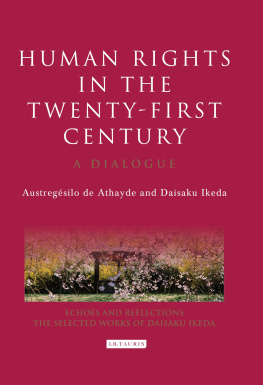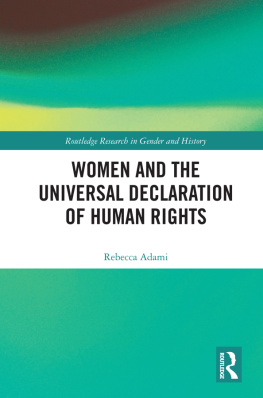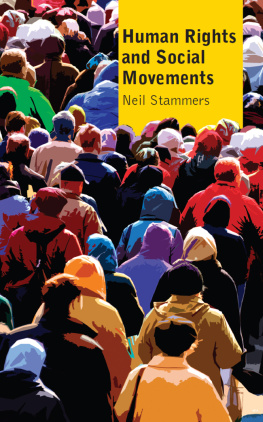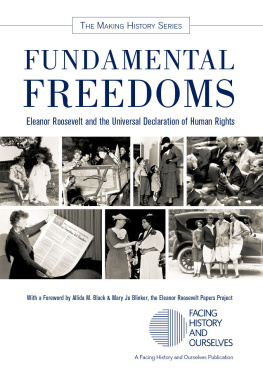HUMAN RIGHTS IN THE TWENTY-FIRST CENTURY
ECHOES AND REFLECTIONS
THE SELECTED WORKS OF DAISAKU IKEDA
Showcasing some of the most potent and far-reaching spiritual works of our times, this major new series brings together for the first time under the banner of a single imprint twelve classic dialogues between modern spiritual master Daisaku Ikeda and a distinguished roll-call of discussants, who are uniformly thinkers of global stature and reputation. Echoes and Reflections ranges widely across the fields of religion, politics, economics, science and the arts, and in each instance puts a profound and searching new perspective on some of the most pressing issues of our age. Topics covered include: the search for worldwide social justice; the challenges posed by climate change and diminishing natural resources; the perils of religious misdirection; the urgent need for inner growth and harmony; the importance of learning and education; and, above all, the significance of the human quest for meaning and value in life.
Titles in the series:
Choose Life, Arnold Toynbee & Daisaku Ikeda
Dawn After Dark, Ren Huyghe & Daisaku Ikeda
Human Values in A Changing World, Bryan Wilson & Daisaku Ikeda
Search for A New Humanity, Josef Derbolav & Daisaku Ikeda
Before it is Too Late, Aurelio Peccei & Daisaku Ikeda
A Lifelong Quest for Peace, Linus Pauling & Daisaku Ikeda
Ode to the Grand Spirit, Chingiz Aitmatov & Daisaku Ikeda
Human Rights in the Twenty-first Century, Austregsilo de Athayde & Daisaku Ikeda
Dialogue on Jos Mart, Cintio Vitier & Daisaku Ikeda
Compassionate Light in Asia, Jin Yong & Daisaku Ikeda
Global Civilization, Majid Tehranian & Daisaku Ikeda
Moral Lessons of the Twentieth Century, Mikhail Gorbachev & Daisaku Ikeda
Echoes and Reflections is a new series that repackages twelve classic dialogues held between Daisaku Ikeda and a variety of interlocutors, which took place from 1972 to 1996. The texts of these dialogues are presented in this series substantively in the form in which they were originally published. For the sake of verisimilitude, and to preserve the integrity of the series, the events, persons and dates referred to in the texts reflect the original periods and contexts in which the conversations were first held, and so have not been altered or edited to mirror subsequent developments in international affairs or the changed worldwide circumstances of later years.
Published in 2009 by I.B.Tauris & Co Ltd
6 Salem Road, London W2 4BU
www.ibtauris.com
Distributed in the United States and Canada Exclusively by Palgrave Macmillan
175 Fifth Avenue, New York NY 10010
Copyright 1995 Laura Sandroni, Antonio Vicente Austregsilo de Athayde, Roberto Athayde, Ccero Sandroni, Daisaku Ikeda and Hiromasa Ikeda
English Translation Copyright 2009 Soka Gakkai
All rights reserved. Except for brief quotations in a review, this book, or any part thereof, may not be reproduced, stored in or introduced into a retrieval system, or transmitted, in any form or by any means, electronic, mechanical, photocopying, recording or otherwise, without the prior written permission of the publisher.
ISBN: 978 1 84511 988 1
eISBN: 978 0 85773 193 7
A full CIP record for this book is available from the British Library
A full CIP record is available from the Library of Congress
Library of Congress Catalog Card Number: available
Typeset by Ellipsis Books Limited, Glasgow
Preface
by Austregsilo de Athayde
This dialogue is more than an encounter between two human-rights advocates. It presents posterity with a book by Daisaku Ikeda who, like me, has dedicated his utmost energies to the essential, indispensable, noble work of protecting the rights of all humanity. The two of us equally have shared the struggle. Emerging from the experiences of that struggle, this dialogue sets out to bring to flower humanitys historic, long held, cherished wish. Accomplishing this in the twenty-first century will rewrite philosophical, social, and political history. As trusting, steadfast comrades, we both hope that our passionate dedication will be the determining factor in ushering in a day of salvation and of equality for men and women of all ages. Such equality will be free of prejudices and respectful of all religious sensibilities and creeds and will assure the basic principles of the Universal Declaration of Human Rights.
Daisaku Ikeda strives to unite the East and the West. His wise teachings embody the noblest ideals of that declaration. The path he points out for the twenty-first century leads to freedom from fear and the preservation of a priceless world where non-discrimination and equality are respected and where families and homes enjoy tranquillity. He is like a shepherd walking side by side with the sheep he guides.
The idea of dialogue has a venerable history. Cicero engaged in dialogues with his friends. Samuel Johnson might be said to have conducted an extended dialogue with his biographer James Boswell. And, of course, the dialogue between Goethe and his friend Johan Peter Eckermann is famous. Mr. Ikeda has conducted many dialogues, including one with Arnold J. Toynbee, one of the most prominent British historians of modern times. Dialogue as a form enables people with great ideas to exchange opinions and bequeath to the world their richly inspiring discussions. In addition, though the participants may speak different languages and belong to different cultural spheres, dialogue enables them to transmit to each other the national spirits as reflected in their social, economic and political concepts. In accumulation, these characteristics determine the course of history and reveal a picture of the evolution of humanity.
Dialogues are remembered into the future to identify our time and space as well as the philosophy, outlook, and plans for the future of the individuals taking part in them. A dialogue with a modern leader like Daisaku Ikeda, whose actions originate in profound reflections, is bound to blaze the way forward and will always be remembered. The heritage of great lessons embodied in his numerous dialogues and his expanding influence on spiritual evolution prove Mr. Ikedas greatness.
The creativity characteristic of humanity since its very emergence is a never-ending process that began when Adam and Eve disobeyed God by eating the forbidden fruit in the Garden of Eden. The process includes the Code of Hamurabi, which has a history of millennia and which was later reflected in condensed form in the pronouncements of Moses and the twelve Hebrew heroes of the Book of Judges. As is the case with Buddhism, through their philosophical concepts, these fundamentally religious works continue to influence people and nations.
In the time of Socrates, the so called Seven Sages Thales of Miletus, Solon, Bias, Chiron, Cleobulus, Pittacus, and Periander publicly argued over the meanings of many different problems on the basis of the same kind of inspiration that was behind the profound, diverse thought of Socrates and Plato. Without flattery of any kind, I can mention in this context Daisaku Ikeda, whom I consider an heir to Aristotle. As we know from his great works, Aristotle relied, not on ideas, but on experiential vision as his source and espoused doubt. He was the first philosopher to do so. His philosophy, or Aristotelianism, a word formed on an analogy with Platonism, has played a major role in the development of the modern natural sciences. There is no room in a preface of this kind to delve deeply into the history of philosophy. Nonetheless, we must touch on it if we are to understand fully the lucid ideals pulsating in the mind of the great leader Daisaku Ikeda.








